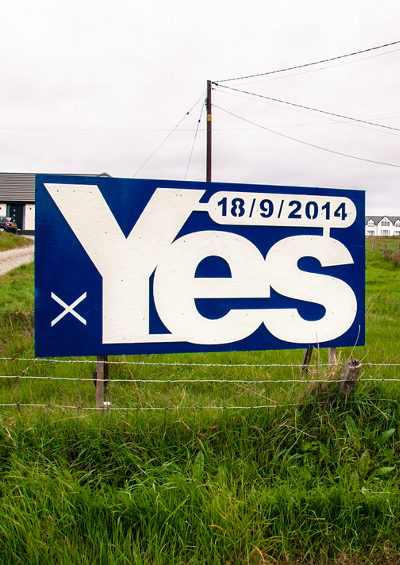Scottish Independence? A Hard Brexit?
Boris Johnson’s latest Brexit moves give the Scottish independence movement a fresh impulse.
September 7, 2020

Nicola Sturgeon, the SNP (Scottish National Party) leader, has promised to publish draft legislation for a second independence referendum before the upcoming election to the Scottish Parliament on May 6, 2021.
Brexit as a driving force
Sturgeon hopes that Brexit, which goes against the will of the 62.0% majority in Scotland that voted to remain part of the EU in June 2016, will reverse the result of the 2014 Scottish Independence referendum. At the time, a 55.3% majority voted to stay in the UK.
Following a major shift in the polls that started shortly after Johnson and the Conservatives won the landslide victory at the UK election on December 12, 2019, the most recent five opinion polls give support for Scottish independence a seven/point lead, with average support running around 49%.
On that basis, one cannot rule out that Scotland could leave the UK in the coming years — even though such pro-independence polls seem to have a habit of narrowing in the run-up to referendum day.
Two hard obstacles
However, actually getting there is hard for two reasons:
1. Not only are around 8% of Scottish voters still undecided. More significantly, with no guarantee that the second independence vote could end in a majority vote for leaving the UK, the SNP may well ride the wave of pro-independence sentiment to boost its support ahead of the Scottish election.
This would likely imply that the SNP would stop short of pushing hard for a second independence vote once in power at the national level — unless referendum polls shifted even further in their favor on a sustained basis.
The SNP also has to think hard about what it wishes for. After all, a second failed attempt to go for Scottish independence would put the question to bed for a generation — and partly undermine the case for voting for the SNP in the future.
2. Scotland still needs the approval of UK parliament to hold a second referendum — unless a future devolution of powers to national governments from the UK parliament in Westminster allowed national parliaments to pass such legislation.
Such legislation seems unlikely as long as the Conservatives are in power. While a landslide victory at the upcoming Scottish Parliament election scheduled for May 2021 could strengthen the hand of the SNP, a second referendum is unlikely ahead of the 2024 UK general election.
A Trump-style negotiating strategy?
In view of news that the UK´s prime minister Boris Johnson plans unilateral shifts that upend the Withdrawal Agreement with the EU, one has to wonder whether this is a Trump-style negotiating strategy on the part of the UK government.
The idea to up the ante seems to be based in the hope that the EU will blink as the clock ticks down or a conscious approach by the UK to undermine the ongoing negotiations on the future relationship (and settle for the hardest possible exit from the EU single market) instead of reaching for a compromise is unclear.
Pretty self-contradictory
It seems odd, to say the least, that the UK could be about to undermine its commitments to Ireland with upcoming legislation after the UK had taken steps in recent months to prepare Northern Ireland’s border for exit day.
It suggests the UK is trying to increase the pressure to get a deal more to its liking rather than going for a hard exit.
Either way, the strategy does not raise the chance of a good outcome. With the costs of a hard exit falling disproportionately on the UK, the strategy could harm the UK more than the much bigger EU.
For the UK and the EU to find compromises on the sticking points — level playing field, governance and fisheries — both sides must work to build trust. The UK’s actions are doing the opposite.
Takeaways
Brexit gives the movement a fresh impulse, but Scottish independence is not likely soon.
The SNP may well ride the wave of pro-independence sentiment to boost its support ahead of the Scottish election.
A second failed attempt to go for Scottish independence would put the question to bed for a generation.
The UK is trying to increase the pressure on the EU to get a deal more to its liking. That may well make a hard exit more likely.
For the UK and the EU to find compromises on the sticking points – the so-called level playing field, governance and fisheries -- both sides must work to build trust. Boris Johnson´s current actions are achieving the opposite.
